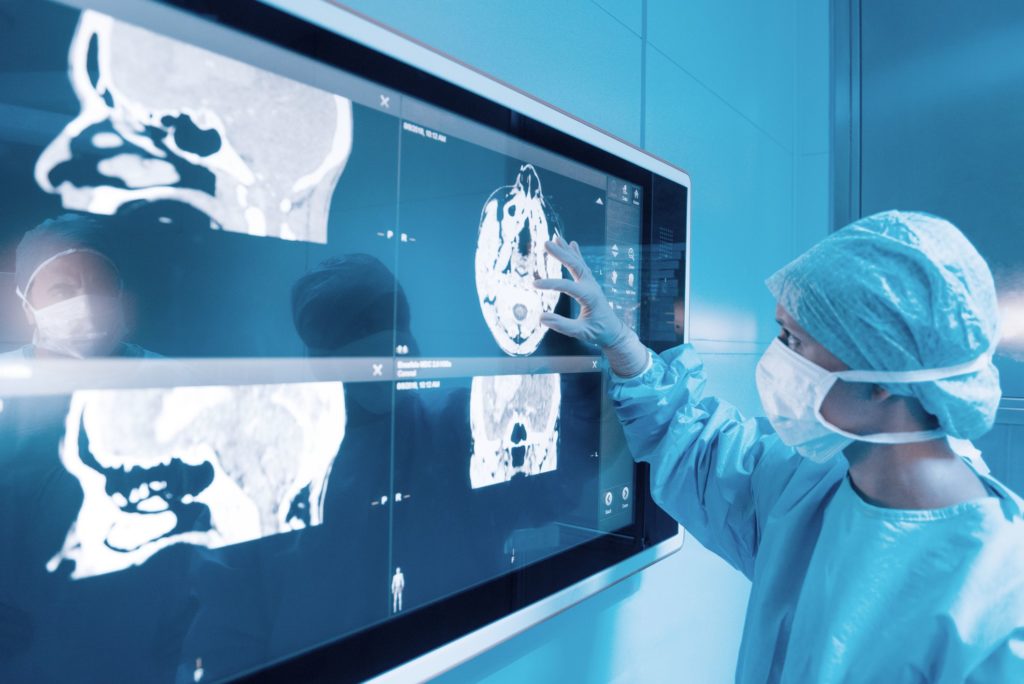Key Takeaways
- Researchers have developed a new test—the first of its kind—to accurately predict depression, based on the levels of this protein found in the brain.
- Experts warn that this kind of test may not be applicable to all patients experiencing depression and can be limiting.
- More research needs to be done to see how a test on biomarkers can factor into treatment.
Depression is characterized by a host of visible symptoms, but scientists have been trying to understand its underlying mechanisms for years. Over time, researchers have found that when there’s less of a specific protein called brain-derived neurotrophic factor (BDNF) in the brain, patients experience more severe depression.
Now, researchers have developed a new test—the first of its kind—to accurately predict depression, based on the levels of this protein found in the brain.
The test, developed by researchers in Australia and China, is the first to successfully isolate the protein already noted for its link to depression. The test, or assay kit, was able to distinguish mature BDNF (mBDNF) from two other forms of the protein. Using the kit, researchers were also able to confirm mBDNF’s relationship to depression, while preventing it from being confused with its other forms.
With this assay kit, measuring mBDNF levels could help to diagnose depression and bipolar disorder.
“This could be an objective biomarker in addition to a clinical assessment by a doctor,” one of the study’s authors Xin-Fu Zhou, PhD, a professor at the University of South Australia, said in a press release.
At the same time, increased production of BDNF has also been linked to exercise, leading many experts to recommend physical activity as a way to ward off depression symptoms. A 2019 study recommended physical exercise when treating older individuals with depression.
Considering these factors, we should take the mBDNF finding as more than just a diagnostic tool, Charles Raison, MD, researcher and professor of human development and family studies at the University of Wisconsin-Madison, tells Verywell. “The first problem is this idea that major depression could ever have a biomarker,” Raison says. “There’d never be a biomarker that would identify every case of depression.”
The research is a collaboration between the University of Adelaide and Kunming Medical University and was published in the Journal of Psychiatric Research this month.
What This Means For You
Researchers are continuing to make innovations on how depression is diagnosed and treated. If you’re experiencing symptoms of depression, consider reaching out to your doctor or a mental health professional.
The Research
Researchers tested a new assay kit, an enzyme-linked immunosorbent assay (ELISA), in 215 people in China, 96 of which had not been diagnosed with clinical depression, 90 who had, 15 who had been diagnosed with bipolar disorder, and 14 who had a history of suicidal attempts.
The key protein of the study, BDNF, was already known to support the survival of brain cells (neurons) by regulating growth, maturation, and maintenance. It also helps regulate the connections between neurons, promoting learning and memory. Experts believe these brain functions decrease in individuals with depression, leading to lower BDNF levels.
Confirming the link, researchers found that the more severe the depression, the lower the mBDNF level. Additionally, patients who had not been taking antidepressants had lower levels than those who had. Surprisingly, there was no difference in mBDNF between the 14 patients with a history of suicide attempts and the control group.
The assay kit tested for mBDNF with 80-83% accuracy. It was important to develop their kit, researchers say, because the existing ones don’t distinguish between the three forms of BDNF, which have opposing functions. That is, the precursor and proBDNF “bind to different receptors, causing nerve degeneration and inflammation.”
“As mature BDNF and proBDNF have different biological activities, working in opposition to each other, it is essential that we can distinguish between these two proteins and detect changes in their levels,” Zhou noted in the press release. He added that proBDNF may play a role in activating the immune system, which is thought to be linked to depressive behaviors caused by inflammation in the brain.
More Emphasis on Therapies, Less on Diagnoses
While this research is important to a scientific understanding of how depression works, Raison says, it’s important that varied experiences of depression that don’t fall into this category aren’t invalidated.
“Let’s say that a person is desperately depressed, that they can’t get out of bed, that they’re planning on killing themselves,” Raison says. “They have really good levels of mBDNF. Would you tell them, ‘Sorry, it’s not possible. You can’t be depressed, you have good levels of mBDNF’? Or conversely, if somebody was perfectly happy, having a very good life, and they have low levels of mBDNF, would you tell them, ‘Well, look, you gotta get over this, you’re really depressed’?”
In addition to focusing too much on the diagnosis, Raison urges that research use biomarkers in the context of treatment.
“If they showed that depressed people with low mBDNF had a very different response to treatment, then you’d want to measure it because it would tell you what to do right now in the world that we live in,” Raison says. “So, there is a need for these individualized predictive biomarkers, but the need is for things that will give us a treatment response, not a diagnosis.”
Researchers stated in the press release that their recent findings are the first step in a line of studies to come, which seek to analyze how proBDNF and mBDNF are impacted by electroconvulsive therapy (ECT). These studies could have real implications, especially for the third of clinically depressed patients that don’t respond to other therapies like antidepressants.
